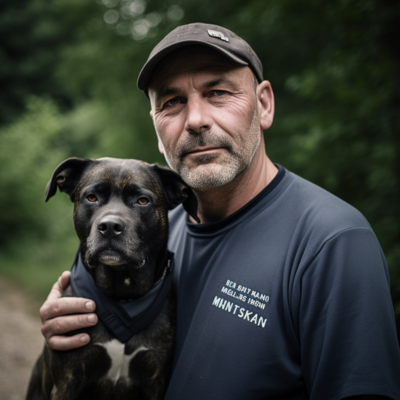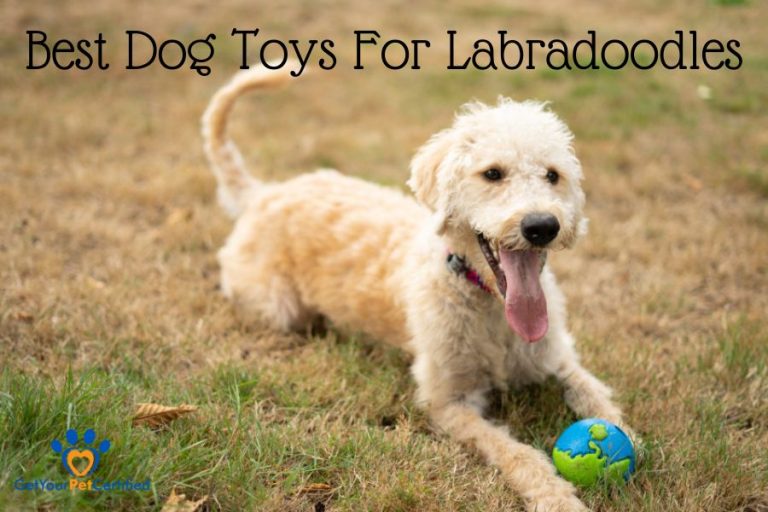Are Bulldogs Disobedient? – Hidden Loyalty
Many people like bulldogs for their lovable personalities and unique appearance. However, others have labelled them as disobedient pets and difficult to train. Are bulldogs disobedient by nature or just a misunderstanding stereotype?
In this article, we will explore the traits of the bulldog breed and their behaviour. By gaining a deeper understanding of the impact of intelligence level and socialisation and exploring effective training methods.

Bulldogs Characteristics
Bulldogs have a unique set of characteristics that can influence their behavior and level of obedience.
Having low energy levels
In general, these individuals are not as active as other types of dogs and enjoy a more laid-back lifestyle. Bulldogs are known for having low energy levels. This could make bulldogs less interested in things that take a lot of attention and energy. As a result, they may be mistaken for disobedience and have less enthusiasm to listen to commands. Especially physical activities, such as fetching or going for a walk.
The trait of being independent thinkers
Bulldogs often analyse situations before complying. Therefore, they are less willing to follow commands without questioning them first. This independent trait can sometimes be misunderstood as stubbornness or disobedience.
Potential stubbornness
Stubbornness is when bulldogs choose to resist or ignore something that they find uninteresting. Maybe they just don’t see the immediate benefit of following a command.
Understanding and accommodating their unique traits can help the owners establish patience, consistency, and positive reinforcement.

The Bulldog’s Intelligence Level
Bulldogs are often described as having a reasonable level of intelligence. They can learn and understand commands and concepts with consistent and patient training. However, they may not excel in tasks that require complex problem-solving abilities or extensive cognitive skills.
Notice:
Short Attention Span: This trait can sometimes pose challenges during training or when trying to hold their focus. Bulldogs may become easily distracted or lose interest in repetitive or prolonged activities.
Training Techniques and How Effective They Are.
Different training methods that can greatly impact a bulldog’s disobedience include:
| Training Method | Description | Effectiveness |
| Tailoring Training Sessions | Structuring training sessions to match the bulldog’s attention span and avoiding boredom or fatigue. | Highly effective |
| Environmental Management | Minimizing distractions and creating a calm training environment to enhance focus. | Moderately effective |
| Positive Reinforcement | Rewarding desired behaviors with treats, praise, or play to reinforce positive actions. | Highly effective |
| Clicker Training | Using a clicker device to mark desired behaviors and associating them with rewards. | Highly effective |
| Target Training | Training the bulldog to touch or follow a designated target to shape behaviour and perform tasks. | Moderately effective |
| Socialization | Exposing the bulldog to various people, animals, and environments to develop confidence and adaptability. | Highly effective |
Owner Responsibilities
The effectiveness of each training method can vary depending on:
Consistency
Consistency in owner responsibilities is crucial for the well-being of pets and the establishment of a healthy owner-pet relationship.
- Providing the bulldog with specific orders and established standards.
- Develop regular patterns of eating, exercising, and training.
Owner’s Patience
Patience is an essential quality for pet owners when it comes to fulfilling their responsibilities. Owning a pet requires patience in various aspects of care and training.
- Should always remember to remain calm and positive during training sessions.
- Use treats to celebrate small successes and progress.
- Be patient and avoid frustration. Bulldogs may require more time to process information and respond to commands.
Adaptation to Individual Needs
Adapting to the individual needs of your pet is a crucial aspect of responsible pet ownership. Every pet is unique, with their own personality, preferences, and specific requirements.
- Training should be adapted to the individual bulldog’s temperament, learning style, and special challenges.
- Observe the bulldog’s reactions and modify your training methods accordingly.
- Seek expert advice to tailor your bulldog’s training to its specific needs.
Variety and Engagement
Incorporating variety and engagement into your pet’s daily routine can enhance their mental and physical well-being.
- Keep training sessions engaging and intriguing by introducing new games, toys, and activities.
- If you want to keep their minds engaged as they play, try getting them some new interactive toys or puzzle games.
Understanding Bulldog’s Unique Needs
Bulldogs are a distinctive breed with specific characteristics that require careful attention and consideration:
- Think about the bulldog’s shorter snout and other physical traits and make sure they’re comfortable in training.
- Take note of their individual characteristics: short focus span and a lack of energy level
Find Out : What is a Bulldogs favorite thing to do?

Yes, socialization plays a crucial role in bulldog discipline. Here are some reasons for our answer:
- Supports the growth of mature attitudes and effective communication abilities.
- Educate your bulldog on how to properly meet and interact with other children.
- Increases bravery when confronted with something unfamiliar and fosters discipline.
- Focus and self-control are important, leading to increased self-discipline.
- Minimise Nervousness and Concern by exposing them gradually to new experiences.









